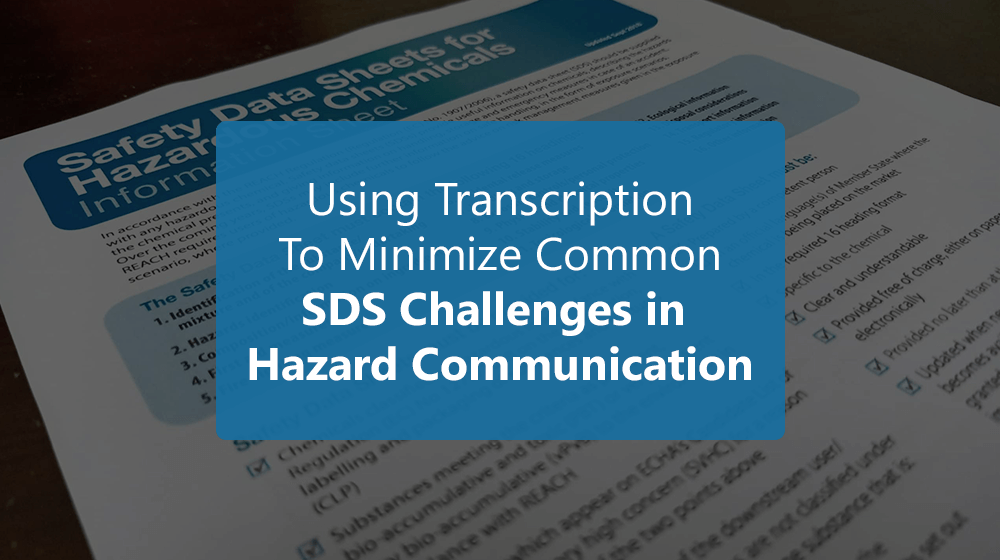Imagine a treasure chest loaded with centuries-old handwritten letters, faded manuscripts, and dusty audio tapes, each illustrating the rich source of human history. Yet, as they sit undecoded, their immense value remains hidden. Here comes transcription, which provides a lifeline to these historical narratives and crackling audio into clear, understandable text. Aided by this, historians can dive into the depth of our past. They can uncover forgotten tales and bring to light unknown aspects of human civilization.
Let’s explore more about the pivotal role of transcription services in historical research and archiving.
1. Oral History Transcriptions
Oral history interviews have become invaluable resources for historians. These interviews offer a unique and personal perspective, often shedding light on lesser-known aspects of history. But, to fully utilize and analyze these interviews, it is essential to transcribe them. Transcription services play a vital role in the preservation and accessibility of oral history interviews. By transcribing audio or video recordings of these interviews, historians can transform spoken narratives into written text, creating a tangible record of the accounts. This process not only preserves the stories for future generations but also makes them searchable and analyzable, enhancing the research process.
Transcription services provide a clear representation of the interviewee’s words. It eliminates the potential for misinterpretation or misquoting. It allows historians to work with reliable and verifiable information. By transcribing the interviews, historians can easily extract specific quotes, anecdotes, or details that are relevant to their research. It enhances the precision and efficiency of the analysis process, saving valuable time and effort.
2. Preservation of Handwritten Documents
Many historical documents are written in archaic handwriting styles or faded ink. It makes them difficult to read and interpret. Transcription services enable experts to transcribe these documents into digital text. It assists in preserving their content and making them accessible to a wider audience. This transcription process helps decode ancient manuscripts, letters, diaries, and other handwritten materials that may hold crucial historical information.
3. Accessibility and Searchability
Transcribing historical records allows for easy search and retrieval of information. Once documents are transcribed, researchers can use keyword searches to locate specific details or themes. It reduces the time spent manually scanning through numerous physical pages. This accessibility and searchability enhance the efficiency of historical research. It provides a deeper understanding of past events and narratives.
4. Data Mining and Text Analysis
With digitized and transcribed historical documents, researchers can employ text mining and natural language processing techniques. They can extract information and uncover hidden patterns. These technologies allow for quantitative analysis of large volumes of transcribed text. They provide new perspectives and help researchers to discover trends, sentiments, and themes that may have remained undiscovered through traditional methods.
5. Translation of Foreign Language Documents
Historical research often involves studying documents written in different languages. Transcription services can be utilized to transcribe and translate foreign language documents. It makes them accessible to researchers who may not be proficient in the original language. This process opens up opportunities for comparative analysis and cross-cultural insights. It provides a broader understanding of historical events across regions and languages.
6. Metadata Creation and Indexing
Transcription services can assist in creating metadata and indexing historical documents. Along with transcribing the content, transcriptionists can add relevant metadata such as dates, names, locations, and keywords to enhance the organization and discoverability of archived materials. This metadata enables efficient cataloging and indexing, making it easier for researchers to navigate vast collections. It will assist them in finding specific documents or topics of interest and establishing connections across different sources.
7. Cross-referencing and Comparative Analysis
Historical research often involves analyzing multiple sources and cross-referencing information to establish accuracy and identify patterns. Transcription services facilitate this process by providing accurate and standardized transcriptions of various documents. Researchers can then compare and analyze transcriptions, identifying connections, discrepancies, and new insights that may have been missed in the original formats.
Wrap up
From preserving handwritten documents to transcribing oral history interviews, transcription services contribute to preserving our rich history. They facilitate accessibility, searchability, and cross-referencing of historical materials. They enable researchers to uncover valuable insights and patterns. We invite you to connect if you want high-quality transcription services to enhance your historical research. Our professional team is dedicated to delivering accurate and reliable transcriptions, ensuring you have the tools to delve into the captivating world of history.

















